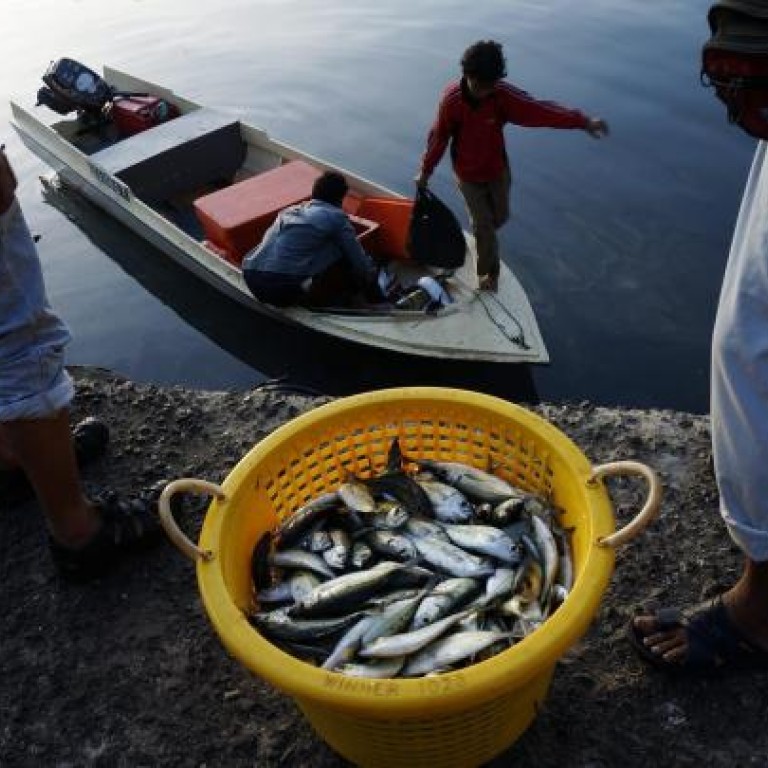
Jihadi says Sabah state is Malaysia's soft spot
Indonesian fighter claims he gets arms from Philippines via coastal state, which has been invaded by followers of self-proclaimed sultan
It is a journey Indonesian Ali Fauzi has made countless times, crossing into Malaysia's eastern state of Sabah on fishing boats and dodging the country's maritime patrols under the cover of darkness.
Dressed as a migrant worker, Fauzi's fellow passengers are unaware that he is a jihadi holy warrior on his way to the southern Philippines to procure guns, explosives and detonators to assemble bombs.

Fauzi's easy passage in and out of Sabah from 1994 to 2005 underscores just how insecure its 1,400 kilometre eastern coastline is, a vulnerability which 200 armed militiamen from the southern Philippines exploited to invade the state on February 9.
The insurgents are followers of the self-proclaimed sultan of Sulu, Jamalul Kiram III, and came to stake an ancient ownership claim to Sabah, located on the easternmost tip of Borneo Island.
Sulu is a grouping of islands that lies between Sabah and the Philippines' Mindanao Island in the south. For centuries, the Sulu Sultanate was an Islamic state that ruled the southern Philippines and parts of what is now Malaysia's Sabah state.
The militiamen got into a three-week stand-off with Malaysian security forces, despite pleas from both the Malaysian and Philippine governments to leave.
The stand-off escalated after the militiamen allegedly tortured and mutilated six Malaysian policemen, ambushing them in a village in Sabah's coastal town of Semporna on March 2.
The killings triggered a Malaysian air and ground assault on the invaders.
To date, 62 militants and 10 members of Malaysia's security forces have been killed, according to official figures.
Operations in Sabah are still going on to flush out the remaining militants, who have infiltrated several areas including the town of Kunak.
Fauzi, 42, knows Kunak, as he often stays there en route to Mindanao to procure arms.
During his stopovers in Kunak, he borrows the identity card of a Malaysian friend to present to the police on the few occasions he is stopped for identity checks.
"The policeman looks at the ID card and then waves me on. The ID card does not have my name or photo. But in the dark of the night, they never look at the photo to check whether it matches my face," Fauzi said.
Fauzi says he is a former member of Jemaah Islamiah (JI), the al-Qaeda-linked group linked to terror attacks in Indonesia.
He is also the younger brother of Bali bombers Mukhlas and Amrozi, who were executed in 2008 for their role in the 2002 attacks. Fauzi was not involved in the Bali bombing.
Fauzi said Mindanao is awash with weapons, which are easily available on the black market.
He used to buy and smuggle between 10 and 15 M-16s per trip, together with a few other men.
"We packed the guns into large backpacks and travelled on fishing boats or petrol tankers, heading for Indonesia from the Philippines. No one ever checked our bags," Fauzi said.
The weapons were for his comrades fighting Christians in eastern Indonesia's Ambon city and Poso city in Central Sulawesi.
More than 12,000 people were killed in sectarian violence in these places and elsewhere in Indonesia between 1999 and 2002. Fauzi left JI in 1999 because he disagreed with the organisation's response to that conflict.
Fauzi also fought with the Moro Islamic Liberation Front (MILF), a Philippine separatist group, from 1994 to 1997 and again from 2002 to 2006.
He is familiar with the militants involved in the Sabah conflict, whom he described as battle-hardened and highly experienced in jungle warfare.
"Many of the armed men in Sabah are from MILF, MNLF [Moro National Liberation Front] and Abu Sayyaf," Fauzi said.
Indonesia's national counterterrorism agency confirmed Fauzi's account of the easy access from Indonesia to the southern Philippines via Sabah.
"The route from Kalimantan, Sabah to the southern Philippines is still the favourite route for militants," said Ansyaad Mbai, the agency's chairman.
The Malaysian government said the Lahad Datu incursion was a stark reminder that external threats remained.
"The eastern seaboard of Sabah is almost 1,500 kilometres long and it is critical that we ensure security along this coastline. That is why we have put in place new measures, including the Special Security Area," said a government spokesman.

